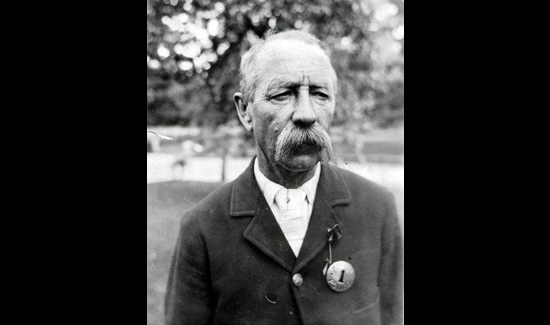Police, Fire Lose Court Fight Over Pensions

Cranston cops probably have it better than back in 1873, but not much. Pictured here is Sgt. John Kenyon, who was in charge of all of the city’s police constables, in 1873.
A recent federal appeals court ruling rejected an appeal by the Cranston fire and police unions in Rhode Island in effect upholding the state’s 2011 and 2015 pension plan changes that resulted in a loss of retirement benefits.
According to an in-depth report by the Providence Journal, the court ruled that police and firefighters in the state pension plan was not a contractual arrangement and that the state had the right to modify the terms and conditions of the pension plan. The unions argued that legislation enacted in 2011 and 2015 that changed the state’s pension system was unconstitutional because it broke what was in effect a contract between the state and the Cranston unions created when they joined the state system in 1996.
The 1st Circuit Court of Appeals upheld a previous ruling by U.S. District Court Judge Mary Lisi that the 1996 state law that put some of Cranston’s police and firefighters in the state pension plan wasn’t a contract and that the state had the right to modify the terms and conditions of the pension plan.
The 2011 changes reduced benefits, set minimum retirement ages and changed how retirement benefits were calculated. In 2015, changes that lessened but didn’t eliminate those benefit reductions were made as part of a class-action settlement.
The Cranston police and fire unions were moved into the state system by a special law in 1996. That was in effect a contract between the state and the public safety workers, the unions argued, and the Constitution bars the passage of laws, like those in 2011 and 2015, that impair the fulfillment of contracts.
The three members of the appeals court who heard the case disagreed.
“A claim that a state statute creates a contract that binds future legislatures confronts a tropical-force headwind in the form of the unmistakability doctrine,” the ruling said.
That doctrine means that unless a legislature clearly states a law is intended to be a contract, it isn’t. The judges said there was precedent for changing the state pension plan, noting that the General Assembly enacted pension plan changes in 1975 and 1984.














